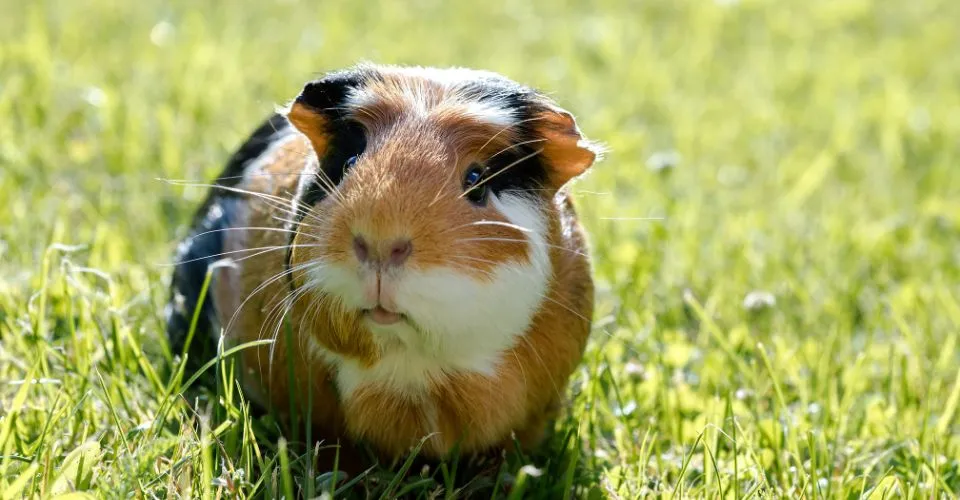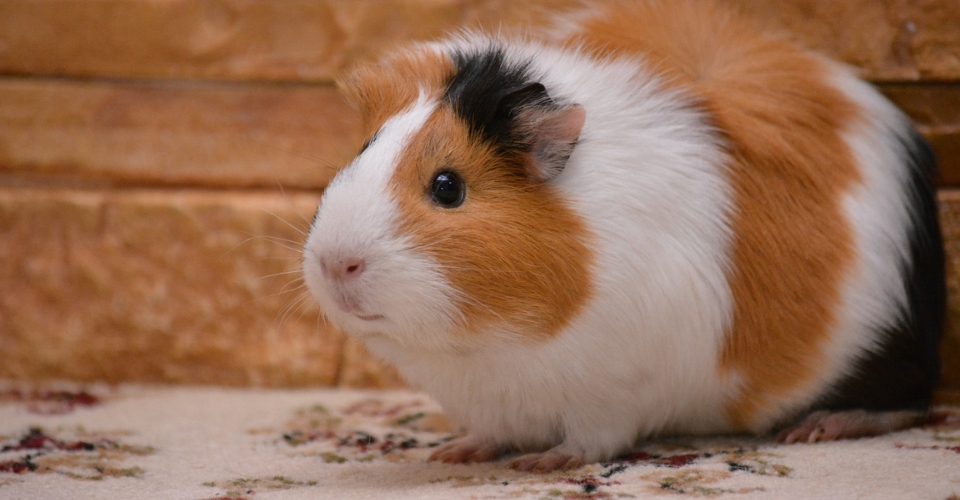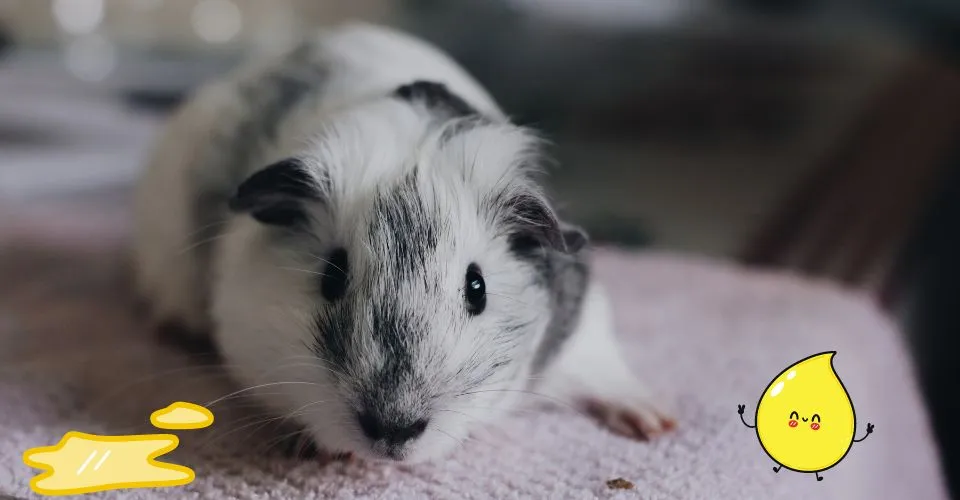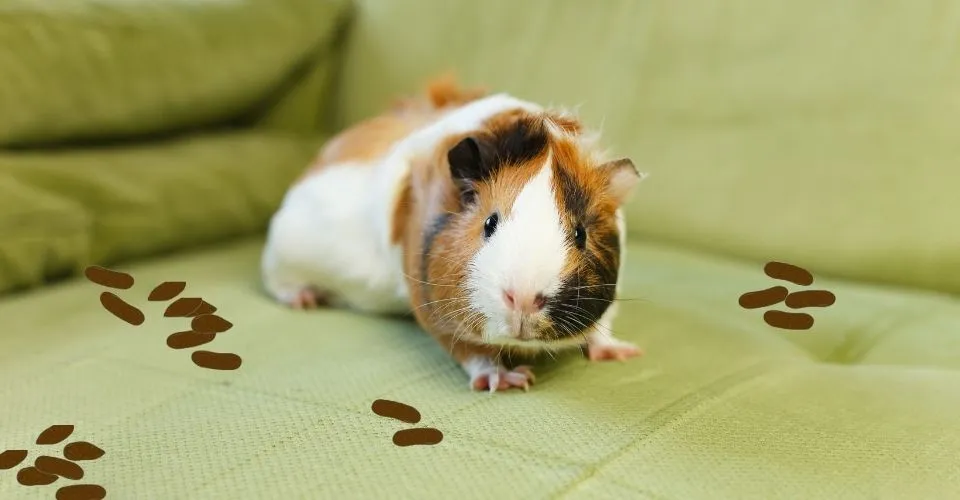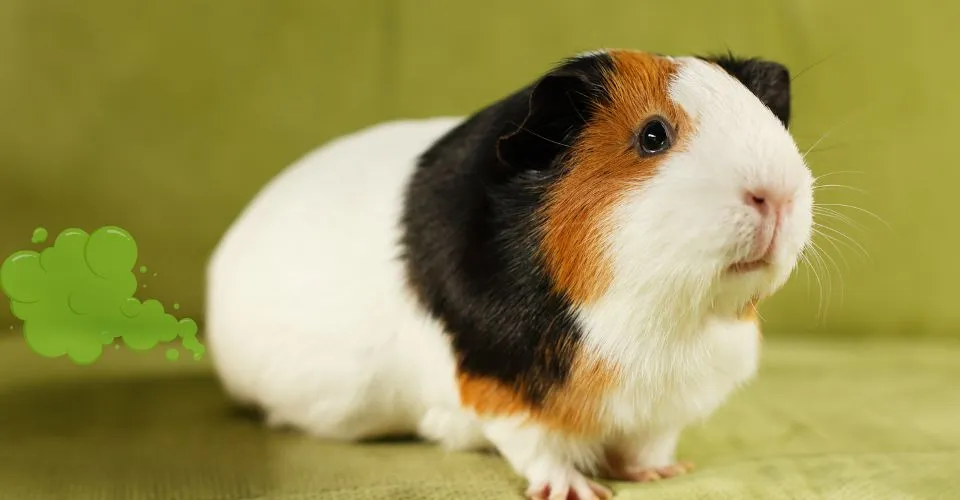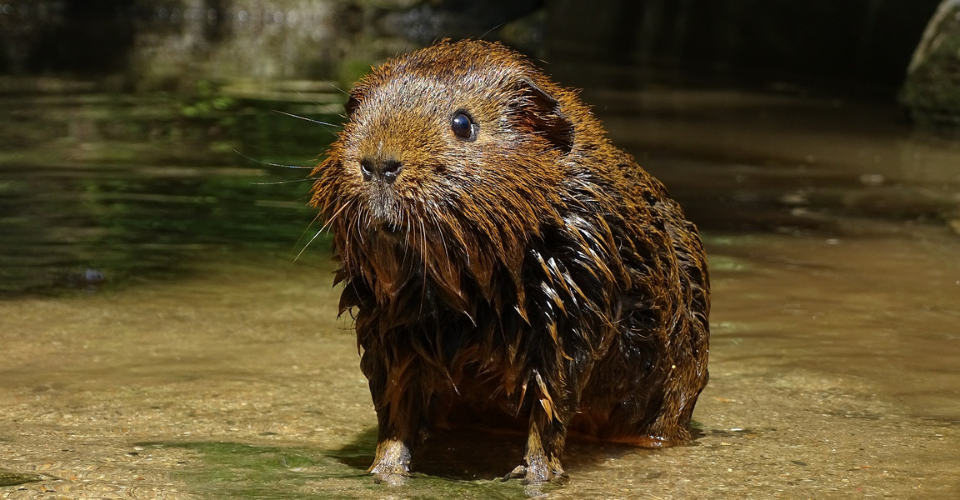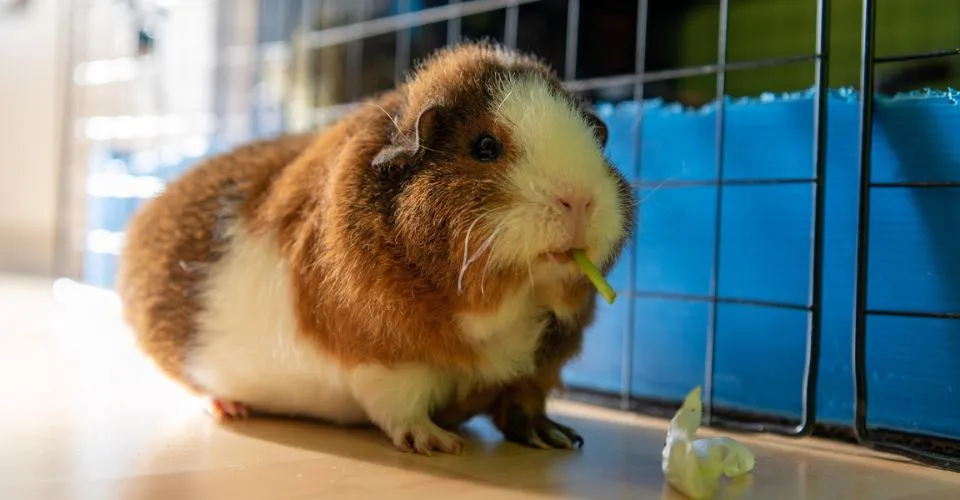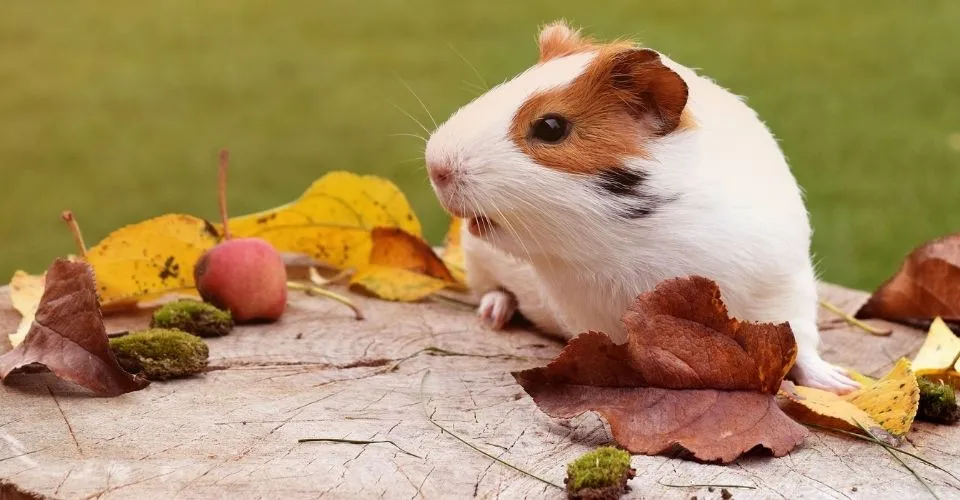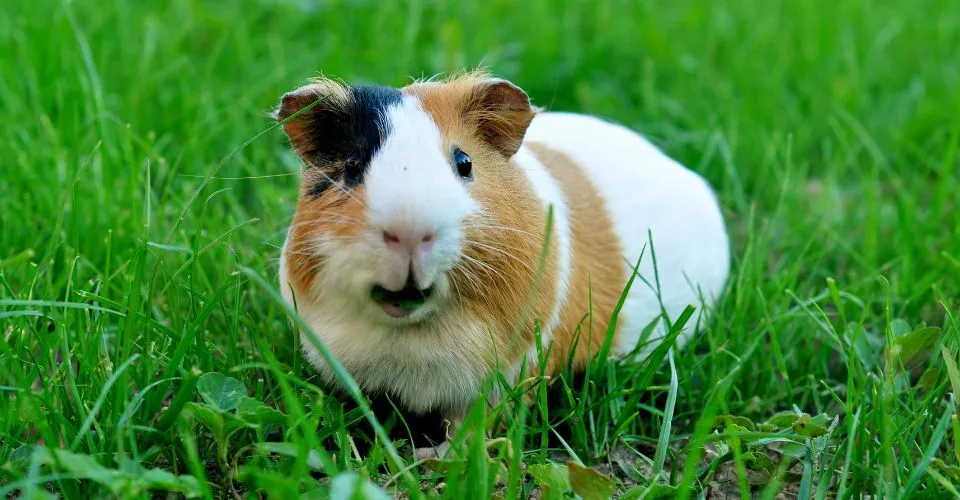Guinea pigs are smart and loving creatures. They are known for having a language of their own—they communicate by making unique sounds and through behaviors like fluffing up and vibrations. These subtle movements convey emotions and physical states. Understanding the underlying meanings of guinea pigs’ sounds and behaviors like vibrating is key to strengthening the bond with your guinea pig.
So, if your guinea pig is vibrating and you have no idea why is it doing so, continue reading. In this article, we explore the reasons why guinea pigs vibrate, such as fear, mating/dominance, happiness, response to cold and annoyance, etc.
Understanding Guinea Pig Vibrations
Through their unique behaviors, our guinea pigs are trying to communicate with us or their fellow piggies. Below we explore what guinea pigs are trying to communicate with vibrating behavior.
1. Guinea Pigs are Fearful and Stressed
Guinea pigs vibrate when feeling fearful or stressed, signaling their discomfort. Loud noises, sudden movements, unfamiliar environments, or rough handling may instill fear and stress among guinea pigs. And this vibrational response expresses their discomfort and desire for safety. Other signs include hiding, freezing, teeth chattering, or hissing.
To prevent vibrating behavior due to fear and stress, you can try to create a calm and stress-free environment for your guinea pigs. You can put out multiple hiding spots in your guinea pig’s cage; minimize noise levels; handle them gently; identify and address underlying causes to relieve fear and stress.
2. Guinea pigs are Rumble Strutting
To establish dominance and communicate during mating rituals, guinea pigs often do a unique movement known as rumble strutting. Male guinea pigs vibrate to establish dominance over females while emitting low-frequency rumbling sounds, accompanied by vibrating behavior. Females also engage in this behavior to establish social positions. These vibrations are natural and essential for social dynamics.
When mating or introducing new guinea pigs into your home environment, create a harmonious environment by understanding how vibrations support healthy interactions while decreasing conflicts. Provide space, hiding spots, and resources, and monitor interactions for a balanced group dynamic.
3. Guinea Pig is Happy
Guinea pigs experience emotions just like humans do and they too have their own ways of showing it. One indicator of contentment and joy may be subtle vibrations; other ways of showing happiness and relaxation include relaxed postures like pancake, quiet purring sounds, and playful activity.
To ensure that your guinea pigs are happy, you should provide them with a spacious enclosure, with multiple hiding spots, ample floor time, opportunities for interaction, socialization, mental stimulation, and exercise. And of course, you must provide them with a balanced diet.
4. Guinea Pig is Cold
If your guinea pig is vibrating after a bath, he is probably feeling cold. Guinea pigs are very sensitive to temperature. They do not like water and hate swimming. Actually, they hate getting wet. Because they get soaking wet and feel cold as it takes ages for them to dry out.
Therefore, it is crucial that you only bathe your guinea pigs when it is absolutely necessary. And have proper post-bath drying sessions to prevent post-bath vibrations and keep your piggies from getting cold.
5. Guinea Pig is Annoyed or Angry
Guinea pigs will often exhibit teeth chattering as an indication of irritation or anger. When stressed or upset, their jaw may vibrate together producing an audible chattering noise which serves as a warning sign about something being unpleasant or problematic.
Guinea pigs may become annoyed or angry if handled too roughly, their personal space is invaded, or they feel threatened. A guinea pig may bite the handler in such a situation. It is essential to handle them gently and respect their boundaries.
6. Guinea Pig is Having Seizures
Seizures in guinea pigs can be both worrying and distressful experiences. A seizure occurs when uncontrollable muscle contractions and tremors arise suddenly and manifest as vibrations throughout the body. Seizures may be due to various causes including underlying health conditions, infections, nutritional imbalances, or neurological disorders affecting their body systems.
If your guinea pig begins experiencing seizures, you must seek medical assistance immediately. A veterinarian can conduct a comprehensive exam to identify what’s causing their fits and provide effective solutions. Prompt medical intervention will help manage seizures more effectively while improving overall well-being.
Here it is pertinent to mention that, oftentimes novice guinea pig owners confuse popcorning with seizures. Just know that popcorning is a healthy activity and shows that your guinea pig is excited about something.
Quick Shake-Off Signals Parasites
Guinea Pigs who shake themselves violently could be showing signs of parasite infestation on their fur. Parasites, like mites or lice, cause discomfort and itching, prompting guinea pigs to vigorously shake off to dislodge these pests from their bodies. This quick shaking-off motion often produces vibrations throughout their bodies.
If your guinea pig is shaking off frequently or showing signs of discomfort, it is wise to visit a veterinarian as soon as possible. They can diagnose and provide treatments for parasites to ease your piggies’ discomfort while decreasing vibrations associated with parasites. Regular grooming and preventive measures, such as keeping up with proper hygiene and health checks can also help ensure the prevention of future parasite infestations in your pet guinea pig.
FAQs About Guinea Pig Vibrations
What should you do if your guinea pig is vibrating?
Guinea pig vibrations could mean many things. It could be a sign of happiness and relaxation and on the other hand, it could also indicate that the guinea pig is fearful, stressed, cold, or angry. Therefore, you must assess the particular situation, identify the cause and address it, if need be.
How Can I Relax My Guinea Pig?
To relax your guinea pig, creating a peaceful environment by providing soft lighting and soothing music, hiding spots, and cozy bedding would go a long way in ensuring that your guinea pig is relaxed. But remember that each guinea pig has different preferences. While most guinea pigs like music, some might not.
Why Do Guinea Pigs Vibrate and Purr?
Guinea pigs vibrate and purr as a way of showing contentment and happiness. Vibrations are caused by rapid breathing while purring is used as a sign of pleasure. Guinea pigs purr when they feel safe, secure, and relaxed, or appreciate positive interactions and affectionate gestures from humans or other guinea pigs. So, if your guinea pig vibrates when you stroke it, this means that your pig is liking being stroked and is purring and vibrating to show its contentment.
Why Is My Guinea Pig Vibrating And Squeaking?
When your guinea pig vibrates and squeaks, it could be a telltale sign of excitement or anticipation, usually associated with food, treats, or engaging in playful activities such as toys. Their vibrations and squeaks express enthusiasm and eagerness. It’s their joyful response to stimuli they find enjoyable.
Why is My Female Guinea Pig Vibrating?
Female guinea pigs may vibrate for various reasons. Female guinea pigs often vibrate due to hormonal fluctuations during the estrus cycle or when looking for a mate. Female guinea pigs may also vibrate to assert dominance within their group or communicate social readiness if aggression or unusual behaviors appear with vibrations.
Final Verdict: Why Do Guinea Pigs Vibrate?
Guinea pig vibrations offer a unique form of communication, conveying various emotions and physical states such as fear, stress, mating excitement, happiness, response to cold, annoyance, seizures, and parasitic infestation. By identifying the underlying reason, guinea pig owners could ensure that their guinea pigs are happy and content.
